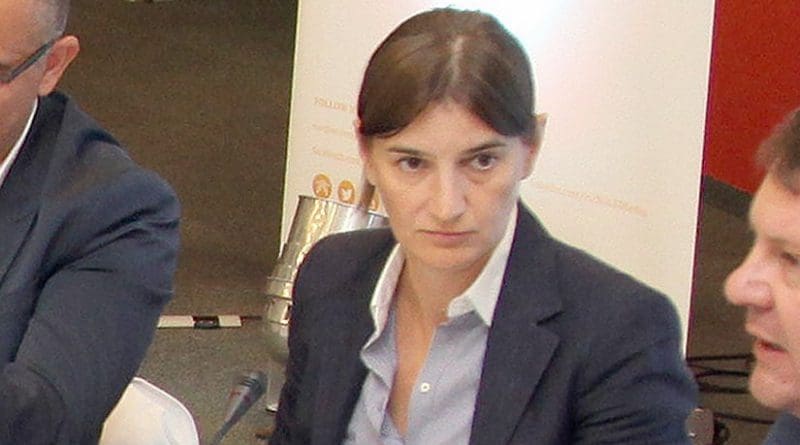Serbia: Brnabic First Gay Woman To Be Named Prime Minister
By Maja Zivanovic
If parliament confirms the choice of Serbian President Aleksandar Vucic – as expected – Ana Brnabic, the current Public Administration and Local Government Minister, will be Serbia’s first woman Prime Minister.
Ana Brnabic, the Minister of Public Administration and Local Government, has been appointed Serbia’s first woman head of government.
“Brnabic has the professional quality for government and I know she will work hard and show the respect to all political parties. She will be working, together with all other ministers, on a better life for Serbia,” President Aleksandar Vucic told a press conference on Thursday, adding that “many challenges” lie in front of the Serbia, as well as “many problems”.
Vucic also announced the continuation of the current policy of reforms.
Brnabic was made a minister in August 2016 and is known for her pro-EU stance.
A non-party expert, she is also Serbia’s first known LGBT minister.
Then-Prime Minister Vucic confirmed to the media that Brnabic was gay, also adding that he was not interested in someone’s personal choices in such matters.
“Ana Brnabic and I were talking about that aspect. She does not hide it, she’s proudly talking [about it]. She is so nice and lovely… I told her ‘I’m interested in what you can do, and I know how professional and hardworking you are,” Vucic said on August 8 last year.
Her ministerial appointment was welcomed by Serbian LGBT NGOs, one of which, “Gay Echo”, on February 2 named her “Gay icon for 2016”.
Born in Belgrade in 1975, according to her CV published on the web portal of the Ministry of Public Administration, she obtained a master’s degree in marketing from Hull University, in the UK, and has more than ten years of experience in working with international organisations, foreign investors, local governments and the public sector in Serbia.
It adds that she was a member of the Managing Board of the PEXIM Foundation, a non-profit organisation that grants scholarships to talented university students from Serbia and Macedonia who return to their home country after graduation to help economic and social development.
She was director of Continental Wind Serbia, CWS, and an important phase in her business career was her engagement in various US consultancy firms that executed programs financed by the US Agency for International Development, USAID, in Serbia.
She was also the Deputy Director of the Project for Competitiveness Development, an expert in the Local Government Reform Program in Serbia and higher coordinator of the Municipal Economic Growth Activity.
Brnabic’s CV also says she actively participated in the establishment of the National Alliance for Local Economic Development, NALED, in 2006 and invested major efforts in increasing NALED’s capacities to represent the business sector, local governments and civil society in Serbia.
She was elected a member and then president of the Managing Board of NALED, which became the largest independent private-public organisation advocating an improvement to the business climate in Serbia.
As the new Prime Minister, Brnabic has a mandate to form the new government and may appoint new, or confirm current, ministers.
She will succeed Vucic in the Prime Minister’s post, after he on April 2 won the Serbian presidential election.

